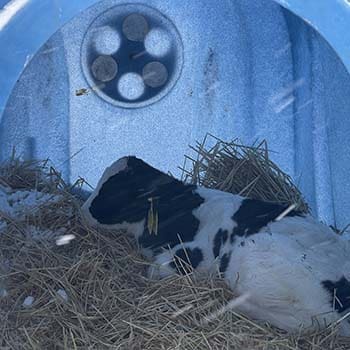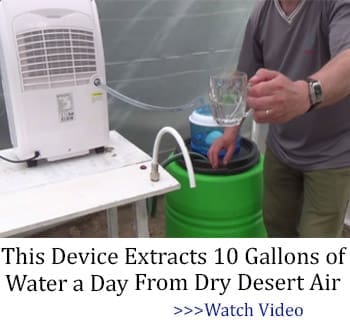Winter can be super fun, but it’s a cold challenge for people who live on farms! Whether you’re new to homesteading or a pro, this season can really test your skills. Fields snuggled under a snowy blanket, water turning into ice—just another day on a winter farmstead.
But in all of this, it’s the livestock that have it the hardest. During my first winter on a homestead, I got ready for everything except caring for the livestock. Consequently, the animals on my farm faced various health issues, leading to ultimate chaos. This experience taught me a valuable lesson: always ready your livestock even before winter arrives.
To ensure your furry buddies stay cozy this winter, never make the mistakes mentioned in this article. Do read this guide till the end, as many of these things have been overlooked by advanced homesteaders for far too long.
Improper Shelter
One common mistake that even the most advanced homesteaders can make is not providing proper shelter for their livestock. Suppose you don’t give them a well-insulated haven. In that case, your animals might suffer from frostbite and, in severe cases, even hypothermia.
Not only that, but the frost can also significantly impact your livestock’s ability to reproduce and their overall well-being. Additionally, if your flock contains pregnant animals, their survival would be at risk without proper shelter.
To stay safer, I always insulate my livestock’s shelter just before winter hits. You can also provide them with warm beddings to relax on. Moreover, remember not to cram all the livestock in one place. Try to give them adequate space so they can live stress-free.
Poor Nutrition Planning
Due to colder temperatures, winter brings a significant shift in the resources available for your livestock. As the environment changes, so should the diet of your animals. Adjusting their nutrition is essential for maintaining their health and ability to withstand winter’s challenges.
However, as you prepare a diet plan for your farmstead animals, steer clear of the following mistakes:
- Overlooking calorie intake: In the colder season, animals require extra calories to generate heat and maintain their body temperature. If you fail to provide them with sufficient caloric intake, it can lead to weight loss and weakened immune systems.
- Ignoring forage quality: Forage quality decreases in winter, and overlooking this can lead to nutritional gaps. You can overcome these nutritional deficiencies by monitoring and supplementing forage with appropriate feeds.
- Not administering mineral supplements: Winter diets may lack essential vitamins and minerals. To compensate for this, you can purchase dietary supplements for your livestock. However, don’t forget to consult with a veterinarian beforehand.
Frozen Water Sources
When it gets cold, taking care of water sources on your farmstead becomes crucial. These sources can completely freeze in winter, leaving your livestock without water. This can lead to dehydration and many other health issues in your animals, such as:
- Improper digestion: Animals require water to digest the food they eat. If, for any reason, you can’t provide them with enough water, their metabolism will eventually decline.
- Reproductive issues: Insufficient water supply for animals in breeding programs can lead to difficulties in conception or even gestation.
- Low body temperature: Water also plays a crucial role in maintaining a healthy body temperature. If your livestock can’t access water, they will become more vulnerable to cold, stress, and related illnesses.
So, the question is: How can we prevent water from freezing during winter?
One trick I’ve inherited from my pioneers is placing water sources in spots that receive the most sunlight. Trust me, friends, this strategy has helped me greatly in slowing down the freezing process and made it easier for me to access liquid water.
You can also purchase some good quality heated waterers designed for livestock. These devices have a heating element that prevents water from freezing.
Ignoring Hoof Care
Snow and ice buildup can significantly affect the overall well-being of your animal’s hooves. If left untreated, it can form ice balls in the hoof’s sole and frog. This causes discomfort and increases the risk of slipping and injuries.
Imagine walking with rocks stuck to the bottom of your shoes—it’s not the most pleasant experience, right?
Hoof care isn’t just about removing ice; it’s also about ensuring the hooves are in good condition. To do this, regularly clear out snow and ice from them. Additionally, check for signs of injury or infection and address them accordingly.
Lack of Exercise Opportunities
Many homesteaders might be tempted to keep their livestock sheltered and confined to protect them from harsh weather conditions. However, what they forget is that this restriction can lead to a lack of exercise, which is harmful to their overall health.
Just like humans, animals need regular physical activity to maintain a healthy weight and promote good circulation. Consequently, when you coop up your livestock for extended periods, they become more susceptible to obesity, joint problems, and muscle stiffness.
To keep my farm animals active year-round, I’ve set up designated areas where they can roam freely, even during winter. You can also consider utilizing spare spaces on your homestead for this purpose. Additionally, if you want to be extra cautious, try designing an enclosed shelter with proper footing to ensure your livestock remains happy and active throughout the winter.
Overlooking Veterinary Care
I thought winters might be the season when the livestock gets all healthy and happy. However, I was proved wrong again! Frosty weather can actually make your animals prone to a lot of diseases that can be avoided only if they are detected at the right time.
Here are some obvious reasons you must consider getting a regular vet appointment for your livestock, especially during winter:
- Vaccinations and disease prevention.
- Preventing and managing respiratory issues.
- Assessing and addressing dental issues.
Bear in mind that regular veterinary care is not only about treating illnesses. But it is also about preventing these diseases and maintaining the overall health of your cherished livestock.
Related: How To Keep Your Livestock Safe In Bad Winter Weather
To sum it up, ensuring the well-being of livestock during winter demands thoughtful planning and proactive measures. From providing adequate shelter and nutrition to preventing frozen water sources and prioritizing veterinary care, avoiding common mistakes is crucial.
With winter approaching, prepare your livestock for the challenging conditions ahead. By following the guidelines mentioned here, you can provide your farm animals with a healthier and better life. Consequently, this will not only benefit you but also let them live a stress-free life.
Happy homesteading!
10 Medicinal Seeds You Should Start This Winter
An Ingenious Eggshell Remedy and 25 Others Made from Things People Usually Throw Away (Video)












